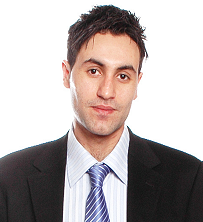 By Alex Tate
By Alex Tate
The use of mobile technology has expanded significantly, and according to the Cisco Visual Networking Index, by 2016 there will be 10 billion mobile devices in use worldwide. With the introduction of 3G and 4G, advances in technology have impacted and transformed service delivery and changed the way consumers access information and conduct transactions.
This technology is now transforming how patient care is delivered. Tablet PCs such as the iPad and healthcare IT applications are transforming many aspects of clinical practice and assisting HCPs with numerous important tasks such as health record maintenance, patient management and monitoring, and communications and consulting.
EHR Goes Wireless
Traditionally, EHRs have been limited to stationary locations such as reception desks or nursing stations. But, thanks to their unique size and wireless capabilities, tablet PCs offer portability and usability, allowing for more convenient ways to fit into a clinician’s workflow. Mobile EHRs let users access medical records from any location with a wireless connection.
Specifically, iPad EHR is transforming care delivery in the following ways:
Provide Information the Patient Can Understand
Mobile EHR allows physicians to engage with patients at their bedside and discuss test results and possible courses of treatments. Many apps can display information that patients can actually understand then switch back to a more detailed physician’s view when done.
Allows Physicians to Stay on Task
Even the greatest physicians sometimes forget the name of a drug or need to be able to look up options for alternative diagnosis and treatment. Mobile technology gives providers the ability to tap into the web or hospital infrastructure immediately without having to walk to their office or a computer station where they may be sidelined by requests from other staff. Bottom line is mobile technology means providers have the information they need when they need it.
Mobile Data Collection and Retrieval
Mobile EHR can significantly aid in collection and retrieval of patient information. Technological advances have made it easy for software apps to provide secure access to data such as lab results, medical history, and discharge notes remotely. The iPad EHR also provides scheduling, medical billing and clinical support that can all be handled remotely.
Capture Charges Anywhere at Anytime
Today’s practices can easily create new patients, capture charges and manage medical billing all from an iPad. Not only does this ability minimize the risk of lost charge slips, but many software packages allow providers to automatically synch work to the cloud allowing the billing manager to instantly access charges and start claims processing. With the upcoming ICD-10 transition quickly approaching, anything that can streamline the coding and billing process will be a welcome relief to most practices.
Charting at Point of Care
The gold standard of EHRs is the ability to chart at the point of care. In years past, clunky computer screens got in the way of true engagement with the patient, but having the ability to chart on small, unobtrusive iPads make interaction easier and more efficient. Charting can be done at bedside or in an exam room and it can be completed by the time the patient leaves.
Full Remote Access to Clinical Documentation
Physicians are never really “off the clock.” They are often needed for a consultation while away from the hospital or office. With EHR for the iPad physicians can fully engage with clinical documentation and review patient notes, lab results, and prescription histories while at home or even away on vacation. This means patients can always receive care from their own doctor instead of one that is on call.
From the widespread adoption of electronic health care records to the ability to have those records accessed 24/7 via mobile devices, medical technology has proven indispensable to the healthcare industry. The latest software programs streamline workflows, reduce the amount of paperwork, and increase the quality of care patients receive.
About the Author: Alex Tate is a digital marketing specialist, content strategist, and a health IT Consultant at CureMD who provides perceptive, engaging and informative content on industry wide topics including EHR, EMR, practice management, compliance.
